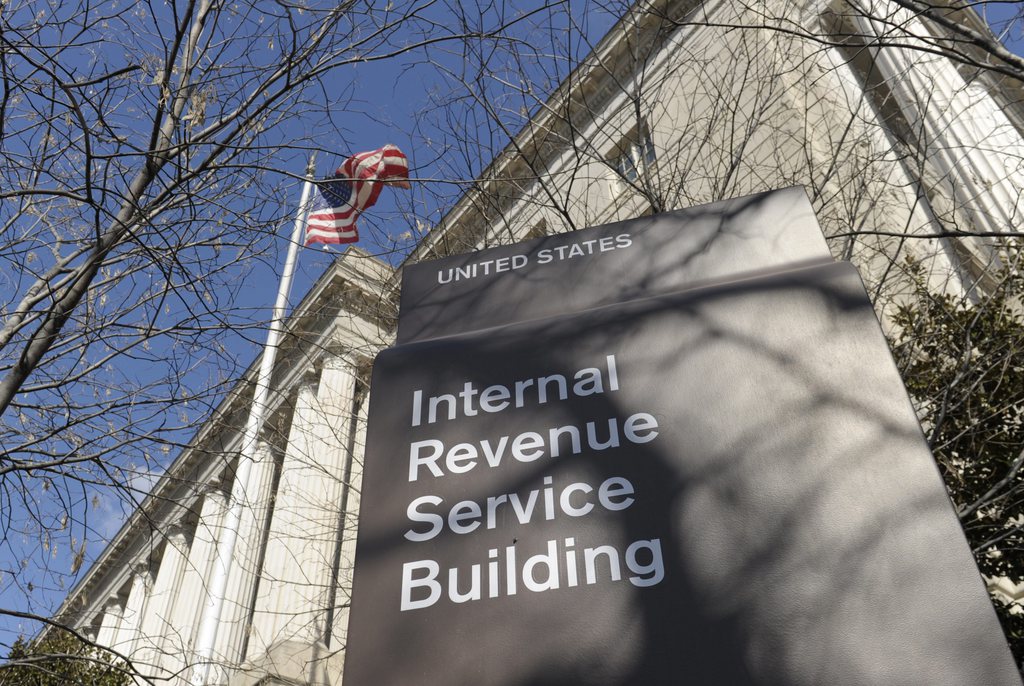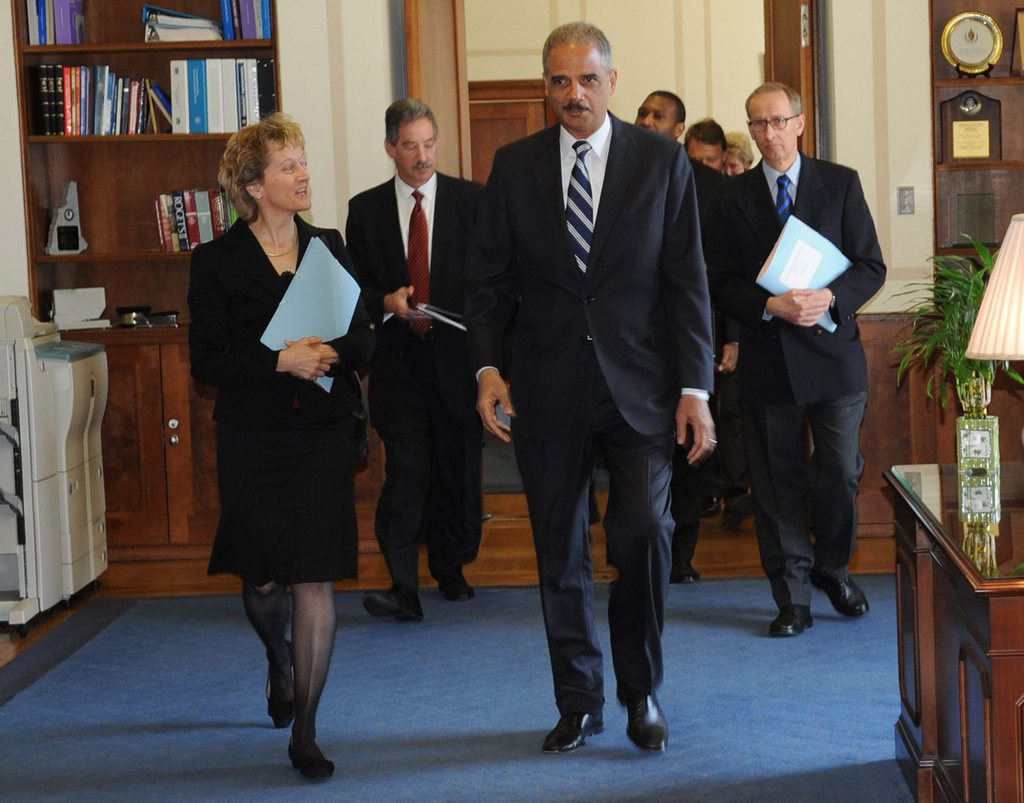Swiss announce US deal to end tax evasion saga

Swiss banks will be allowed to pass on more confidential information to the United States authorities to clear up the ongoing tax evasion row between the two countries, the government announced on Wednesday.
Banks will remain banned from passing on client names or account details under the deal, but they could reveal a trail of data leading to US tax dodgers with undeclared assets hidden in Switzerland.
Parliament will be asked to vote in favour of the long-awaited bill in June. Swiss Finance Minister Eveline Widmer-Schlumpf said the data transfer would only last for one year and was the best way to “restore stability” to the financial sector.
Banks would also be allowed to name their own staff and other third parties, such as lawyers and tax advisors, involved in US business activities. But clients’ identities could only be given through a request via the existing double taxation agreement.
The Swiss parliament will be presented with two bills in June that aim to deal with existing US tax dodgers and measures to prevent future evasion.
The cumbersomely named “Federal Act on Measures to Facilitate the Resolution of the Tax Dispute between Swiss Banks and the United States” intends to put legacy issues to bed.
If passed, it would allow Swiss banks to furnish the US authorities with more evidence against its tax dodging citizens that already conceal assets in Switzerland.
US prosecutors must still formally ask the Swiss authorities for client names and account details under the existing double taxation agreement between the two countries.
Swiss banks would also be authorised to pass on the names of their own employees that have been involved in US client business.
The Foreign Account Tax Compliance Act (Fatca) will also be on the parliamentary table in the summer session.
Fatca sets down new rules on conducting future business with US citizens by forcing banks and a range of other institutions to name their clients or apply a 30% withholding tax.
Under the Swiss negotiated version banks, securities dealers, insurance companies, trustees, foundation and company administrators would need their clients permission before they could identify them to the US authorities.
Financial firms would be obliged to inform the US tax authorities if it has non-compliant accounts and funds.
The identity of any US account holder that refuses to comply with Fatca’s demands could be tracked down by a request for judicial assistance under the double taxation treaty.
Mixed reactions
Reaction to the news in Switzerland was mixed. The Swiss Bankers Association said on its website that the solution could finally restore legal certainty to the country’s financial sector following years of prosecution, indictments and threats from the US.
The Swiss bank employees association said that providing staff names to US investigators was a necessary evil to ensure a long-term solution for the finance sector.
Under the deal, bank employees must be informed about the nature of the data transferred and benefit from safeguards against discrimination or being made redundant because of ties to American clients. Banks will also be expected to pay any employee legal costs related to these cases.
But the Swiss Chamber of Tax Advisors said in a statement it was “unacceptable” that its members could be hung out to dry “to correct the mistakes of large banks”.
The Swiss-American Chamber of Commerce welcomed the fact that clients’ names would not be included in the information handed out by banks. “There are no unreasonable demands regarding client confidentiality, but we still do not know what price has to be paid by banks,” Chamber Chief Executive Martin Naville told swissinfo.ch
Political coolness
Most of the Swiss political parties, wherever they stand on the spectrum, have been unenthusiastic about the deal.
The president of the centre-left Social Democrats, Christian Levrat, put out a statement saying it was strange to “support businesses which have created their own difficulties with regard to the American legal authorities”.
His party will not vote in favour of the project. They would rather see information exchanged automatically and obtain clear assurances from the banks that they will no longer conduct business with assets that do not comply with the tax regulations.
A statement from the rightwing Swiss People’s Party said the government appeared to have failed in its negotiations with the US over a global agreement, and described the deal as a violation of Swiss law. It called for a proper parliamentary debate on the issue, rather than a quick vote.
However, it did not say explicitly whether it would vote against.
The centre-right Radical Party agreed that the deal was not the global agreement that the government had promised. Radical Party parliamentarian Ruedi Noser accused the government of trying to make parliament take responsibility for the deal, without informing it of the details of the solution reached.
And parliamentarian Pirmin Bischof of the centre-right Christian Democrats said that it was up to the banks themselves to reach an agreement with Washington.
The only major party to come out in favour of the deal was the Conservative Democrats, Widmer-Schlumpf’s own party, which said that it was “high time” to draw a line under the tax dispute with the US. It described the deal as a “pragmatic solution”.
Financial consequences
Several media reports put the eventual bill in fines and compensation to be paid by Swiss banks to the US as high as $10 billion CHF9.7 billion). But Widmer-Schlumpf refused to be drawn on such speculation at Wednesday’s press conference.
The finance minister said the government had not discussed a total sum for fines and would not offer financial assistance for banks as they seek individual settlements. She added that the US authorities would provide details once the bill was approved by parliament.
The country’s biggest bank UBS was forced in 2009 to pay a fine of $780 million and hand over the names of more than 4,000 clients, after being caught red-handed aiding and abetting US tax cheats.
Switzerland’s oldest private bank, Wegelin, said in January it was closing down after pleading guilty to helping Americans evade taxes, paying a fine of nearly $58 million.
At least 14 Swiss banks are currently under formal US investigation include Credit Suisse, Julius Baer, British bank HSBC’s Swiss arm, privately-held Pictet in Geneva, and smaller players such as LLB’s Swiss arm and the Zurich and Basel cantonal banks.
According to Widmer-Schlumpf, no fresh investigations will be launched during the validity of the legislation as per an agreement with the US authorities.
However if the bill was turned down, more banks could quickly expect trouble.
Reaction to the news in Switzerland was mixed. The Swiss Bankers Association said on its website that the solution could finally restore legal certainty to the country’s financial sector following years of prosecutions, indictments and threats from the US.
The Swiss bank employees association said that providing staff names to US investigators was a necessary evil to ensure a long-term solution for the finance sector.
Under the deal, bank employees must be informed about the nature of the data transferred and benefit from safeguards against discrimination or being made redundant because of ties to American clients. Banks will also be expected to pay any employee legal costs related to these cases.
But the Swiss Chamber of Tax Advisors said in a statement it was “unacceptable” that its members could be hung out to dry “to correct the mistakes of large banks”.
The Swiss-American Chamber of Commerce welcomed the fact that clients’ names would not be included in the information handed out by banks. “There are no unreasonable demands regarding client confidentiality, but we still do not know what price has to be paid by banks,” Chamber Chief Executive Martin Naville told swissinfo.ch

In compliance with the JTI standards
More: SWI swissinfo.ch certified by the Journalism Trust Initiative











You can find an overview of ongoing debates with our journalists here . Please join us!
If you want to start a conversation about a topic raised in this article or want to report factual errors, email us at english@swissinfo.ch.